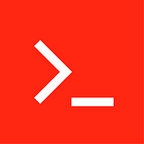Noscendo Revolutionizes Diagnostics through Software
How a startup fights one of the hidden killers in healthcare
According to the WHO, sepsis kills 11 million people globally per year. So it’s worth asking: what exactly is sepsis? When pathogens (or disease-causing agents) enter the bloodstream, they can cause a high-risk condition called sepsis. This happens because your circulatory system, a network of blood vessels, transports that blood to all your muscles and organs. It can lead to systemic shock, or a shut-down of various organs, and hence a potentially life-threatening condition.
Why should we talk about sepsis?
Only ⅓ of people with sepsis recover from it. The other ⅓ develop life-long impairment, and unfortunately, due to this severe condition, ⅓ of patients die. These statistics can’t be accepted. Reliable diagnosis of the condition, i.e. proper identification of the bugs causing it, needs to be precise and quick. In order for a physician to know what’s causing sepsis, they need to recognize the pathogen and discover whether it’s of a fungal, viral or other origin. Every hour counts. Once in the bloodstream, pathogens tend to replicate quickly.
Reliable diagnosis of the condition, i.e. proper identification of the bugs causing it, needs to be precise and quick.
You may be wondering, what leads to sepsis? It can start from a simple injury like a wound that gets infected, or post-surgery, or be triggered by a weak immune system — very common in cancer patients undergoing treatment, for example. Often though, affected people have what’s called a ‘fever of unknown origin’.
What’s the current way of diagnosing sepsis?
The state of the art is generally considered to be a blood culture, which we think is actually fairly medieval. It’s not uncommon for a culture to come back with no result, leading to use of a broad-spectrum antibiotic, and we know by now where that leads. Nowhere good.
From our perspective at Earlybird, our Health team invests in solutions where we see proof that technology can bring a major impact on public health outcomes. What’s unusual for us is that this was a software-only investment. In February of 2020, we invested in a solution: meet Noscendo.
Noscendo revolutionizes diagnostics through a new workflow and insights in what’s called ‘NGS’ or Next Generation Sequencing. This involves taking peripheral blood and sorting out non-human genomic sequences. It allows for a filtering out of so-called ‘clinically-relevant’ materially, i.e. the DNA fragments, or ‘reads of microbial origin’.
We are happy to say that clinical trials have been very promising. Here in Germany, Noscendo already collaborates with the nation’s biggest health insurance provider, Techniker Krankenkasse (TK). And more developments are underway.
What’s next for Noscendo?
In order to drive real impact in advancing diagnosis, Noscendo is implementing their solutions in hospital environments, such as the University Medicine Mainz and the University Hospital Bonn.
This introduction of new diagnostics stands to benefit physicians who seek accurate and prompt results of blood analysis, which can have direct benefit on patient outcomes. And that is our ultimate goal.
As a portfolio company, we’re excited to support Noscendo in scaling their efforts! Get to know more about them here.
UPDATE: Congrats to Noscendo on being named a 2020 Health Pioneer! Read all about it in the Handelsblatt.
Our Earlybird Health team prioritizes patient-outcomes, having just announced the 11th investment in Health Fund 1 earlier this month. Learn more about our focus and investments here.
If you are working on groundbreaking changes in healthcare, let us know!
